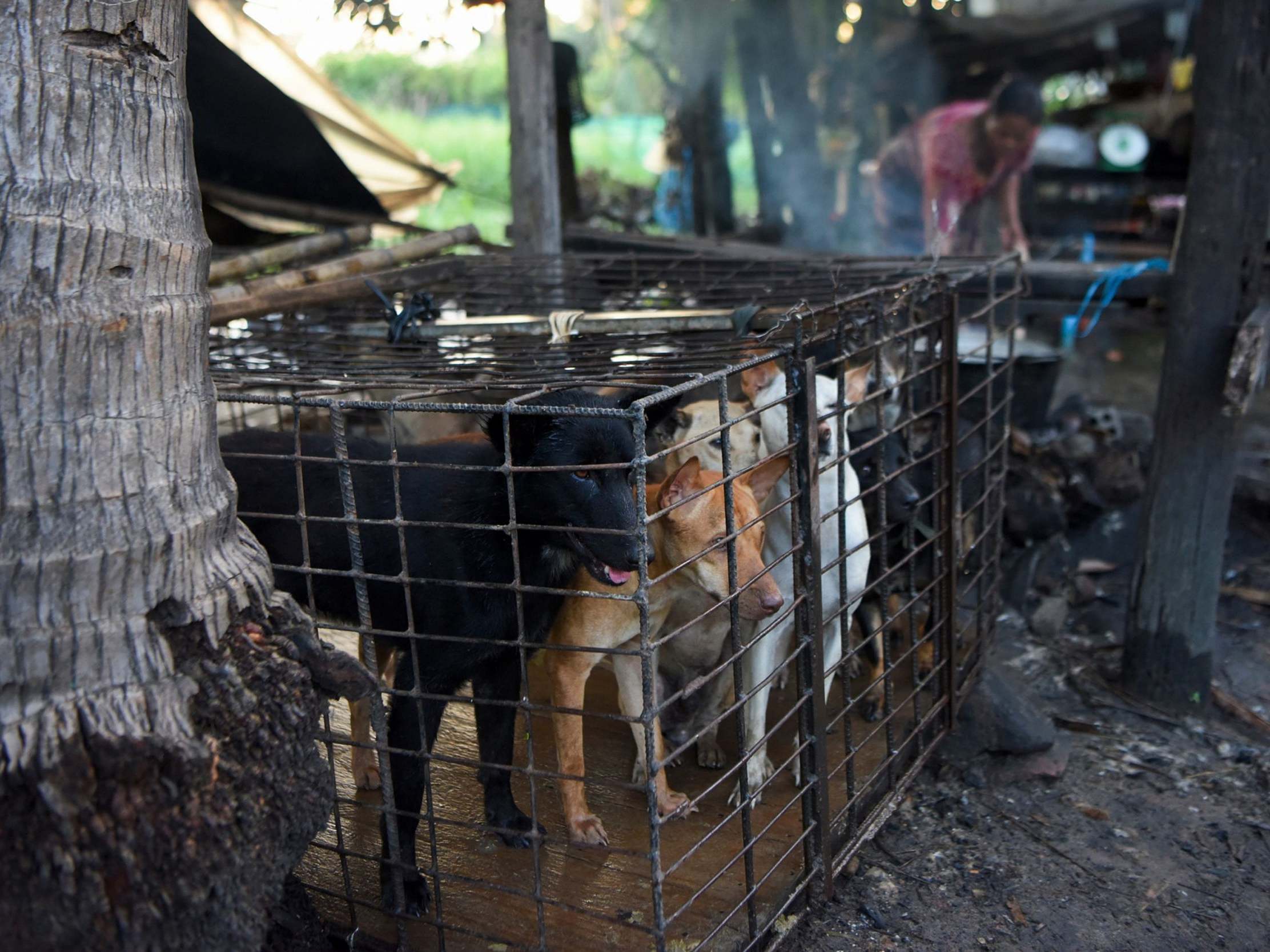Cambodia bans dog meat trade in ‘lynchpin’ town
Tourist town of Siem Reap becomes first province in country to stop sales in ‘huge milestone for animal welfare’

Your support helps us to tell the story
From reproductive rights to climate change to Big Tech, The Independent is on the ground when the story is developing. Whether it's investigating the financials of Elon Musk's pro-Trump PAC or producing our latest documentary, 'The A Word', which shines a light on the American women fighting for reproductive rights, we know how important it is to parse out the facts from the messaging.
At such a critical moment in US history, we need reporters on the ground. Your donation allows us to keep sending journalists to speak to both sides of the story.
The Independent is trusted by Americans across the entire political spectrum. And unlike many other quality news outlets, we choose not to lock Americans out of our reporting and analysis with paywalls. We believe quality journalism should be available to everyone, paid for by those who can afford it.
Your support makes all the difference.Siem Reap, one of the most popular tourist towns in Southeast Asia, has become the first province in Cambodia to ban the dog meat trade in a victory for animal rights activists who called the area a “lynchpin” of the industry.
An investigation by international animal rights group Four Paws found a “dedicated dog slaughterhouse” and five holding and trading areas in Siem Reap, as well as 21 restaurants serving an estimated 2,900 dogs per month in the city.
Authorities in the province, where the famous Angkor Wat temple is located, announced the ban on Tuesday. The provincial agricultural department said in a statement that the dog meat trade had descended into “anarchy” in recent years, causing rabies and other diseases to spread from region to region.
The department said in a statement that the “catching, buying, selling and slaughtering of dogs” would be punished “severely”, with maximum penalties including five years in prison and fines of up to 50 million riel (approximately £9,700).
Dr Katherine Polak, head of Four Paws, said: “The historic decision by the Siem Reap government to ban the stealing, trading and killing of dogs is a huge milestone for animal welfare in Cambodia and is reflective of current sentiment among Khmer people.
“We hope that Siem Reap will serve as a model for the rest of the country to follow suit to protect the lives of millions of dogs.”
The dog meat industry in Cambodia sees an estimated three million dogs slaughtered for consumption annually. Thousands of animals are transported from Siem Reap to different parts of the country each month, including to the capital, Phnom Penh.
Tea Kimsoth, director of the provincial agriculture, forestry and fisheries department, told Reuters that demand for the meat was driven by foreigners, especially South Korean visitors to the country.
“They like it, that’s why it led to restaurants serving it, so now we ban it,” he said, adding that the trade was “alarming”.
The Cambodian province’s decision follows China recent ban on the sale of dog and cat meat. The animals were kept in poor conditions, making them vulnerable to disease that could be transmitted to humans, said activists.
Join our commenting forum
Join thought-provoking conversations, follow other Independent readers and see their replies
Comments